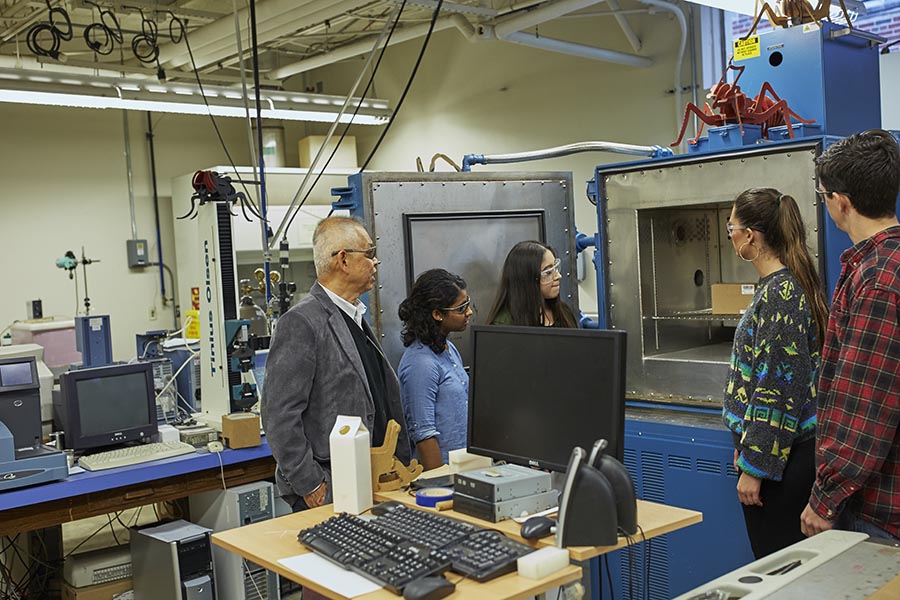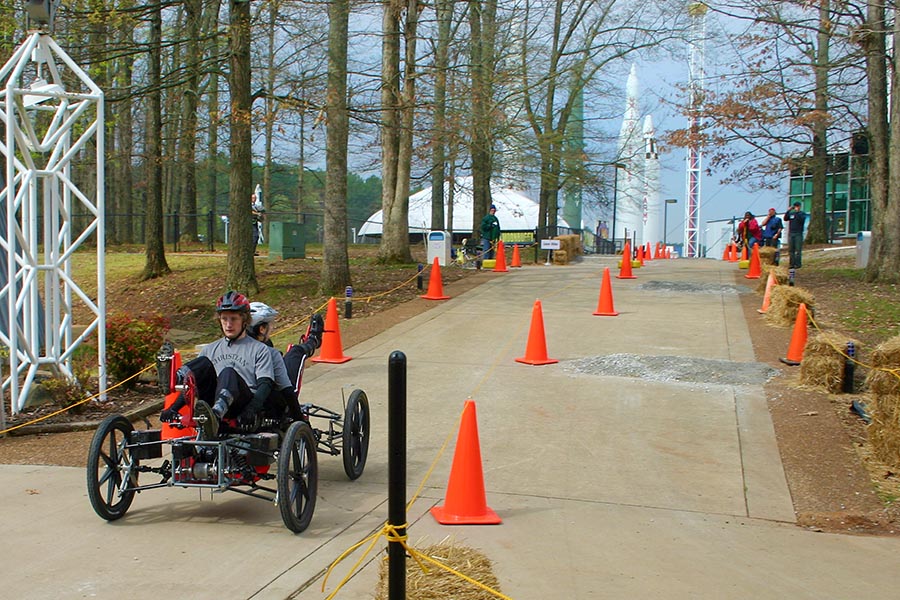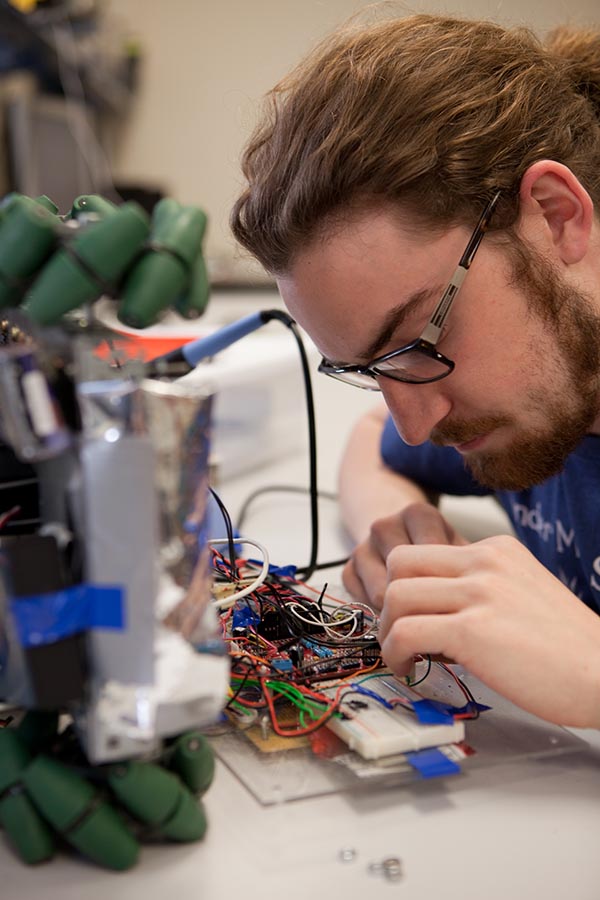
Packaging is offered as a degree concentration, along with an ISTA-certified test lab and the unique Healthcare Packaging Consortium.
Nurturing Intellectual, Professional, and Personal Development
Since 1956, the Gadomski School of Engineering within Christian Brothers University has produced over 2,500 engineering graduates. Its legacy includes engineers who work for prominent local, regional, and national companies including FedEx, Buckman Laboratories, DuPont, NASA, TVA, Lockheed Martin, Shell Oil, GlaxoSmithKline, and U.S. Army Corps of Engineers.
The School was officially named the Gadomski School of Engineering in 2016 in honor of and in gratitude to alumnus and longtime benefactor, Richard Gadomski.
A 1962 CBU graduate in chemical engineering, Gadomski went on to a career that ranged from the aeronautics industry in California to chemical and process engineering in Germany, ending with Process Systems Inc. (PSI), his own Memphis-based corporation that was sold to the German conglomerate Lurgi in 1998. “I’m grateful for what the Christian Brothers did for me,” he says. “I came out of this organization, and I have to help keep that mission going for the next generation.”

The CBU Rover Challenge Team competes annually at the NASA Human Exploration Rover Challenge at the U.S. Space & Rocket Center.
A Legacy of Excellence
The Gadomski School of Engineering traces its roots back to the post-World War II era when CBU began offering new academic programs for returning servicemen. Brother Philip Morgan, armed with his new degree in electrical engineering from the Illinois Institute of Technology, established the first engineering degree program in West Tennessee at CBU in 1954.
CBU later added mechanical, civil, and chemical engineering programs. These core programs are now accredited by the Engineering Accreditation Commission of the Accreditation Board of Engineering and Technology. “The School also offers a bachelor’s degree in engineering management, with concentrations available in construction management, data analytics, packaging, and sustainability.”
CBU in 1989 began offering a master’s degree in engineering management for engineers with professional experience moving into management positions. During the 2006-07 academic year, the degree began to evolve into today’s Master of Science in Engineering Management. The Master of Science in Computer Information Systems was added in 2017.

CBU offers ABET-accredited programs in electrical, mechanical, civil, and chemical engineering, as well as a degree in engineering management, with concentrations available in information management, packaging, and sustainability.
The Gadomski Experience Today
An engineering education from CBU’s Gadomski School of Engineering is distinguished by personalized interaction between students and faculty, a strong laboratory component in the curricula with a new lab building to be completed in the near future, and an emphasis on real-world experience through hands-on design projects and paid internships.
Another of the School’s recent additions to its programs is its Healthcare Packaging Consortium founded in 2010 with a mission of advancing the knowledge related to healthcare packaging through education and research. Its vision is to be a unique world-class healthcare packaging consortium with member companies from various segments of the packaging industry.
The success of the program is evidenced by the companies who have joined the initiative: FedEx, Evergreen Packaging, Medtronic, Bayer Consumer Care, Smith & Nephew, Wright Medical, The Pallet Factory, New-Tech Packaging, MicroPort Orthopedics, The Royal Group, Glaxo-SmithKline, Thaddeus Medical Systems, SweetBio, International Paper, Eetbe, Restore Medical Solutions, and Olympus Surgical Technologies America.
Gadomski Engineering School Dean Dr. Siripong Malasri noted, “Our engineering program’s strategic goals are focused on growth and recognition. We strive to nurture the intellectual, professional, and personal development of our students and to prepare them to be effective, productive, and ethical engineers. Partnerships like the Packaging Consortium and our new Surface Water Institute that we have developed with government agencies and the private sector in the region benefit the entire community.”
